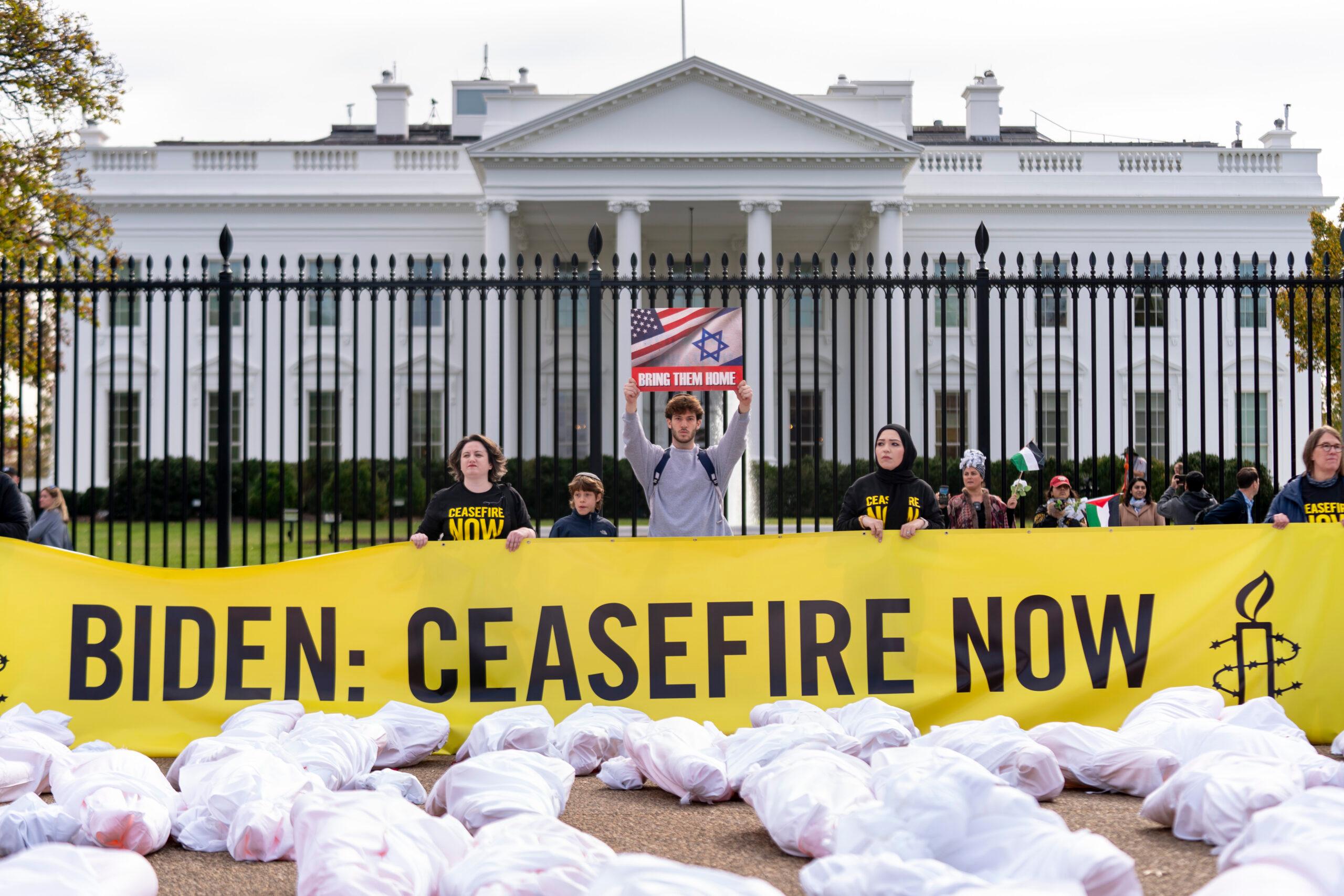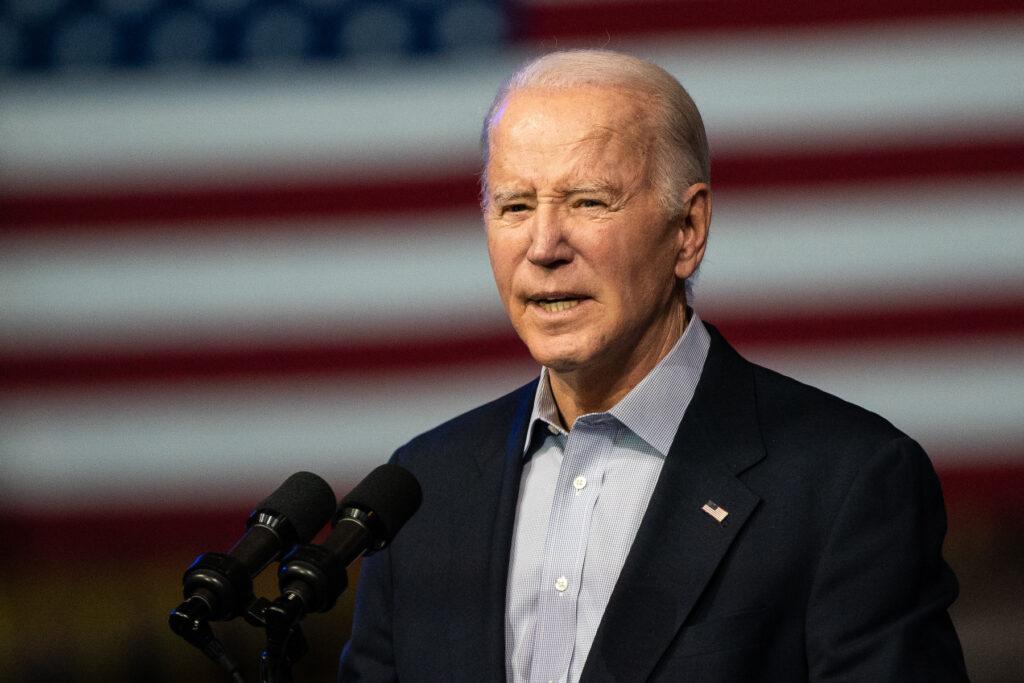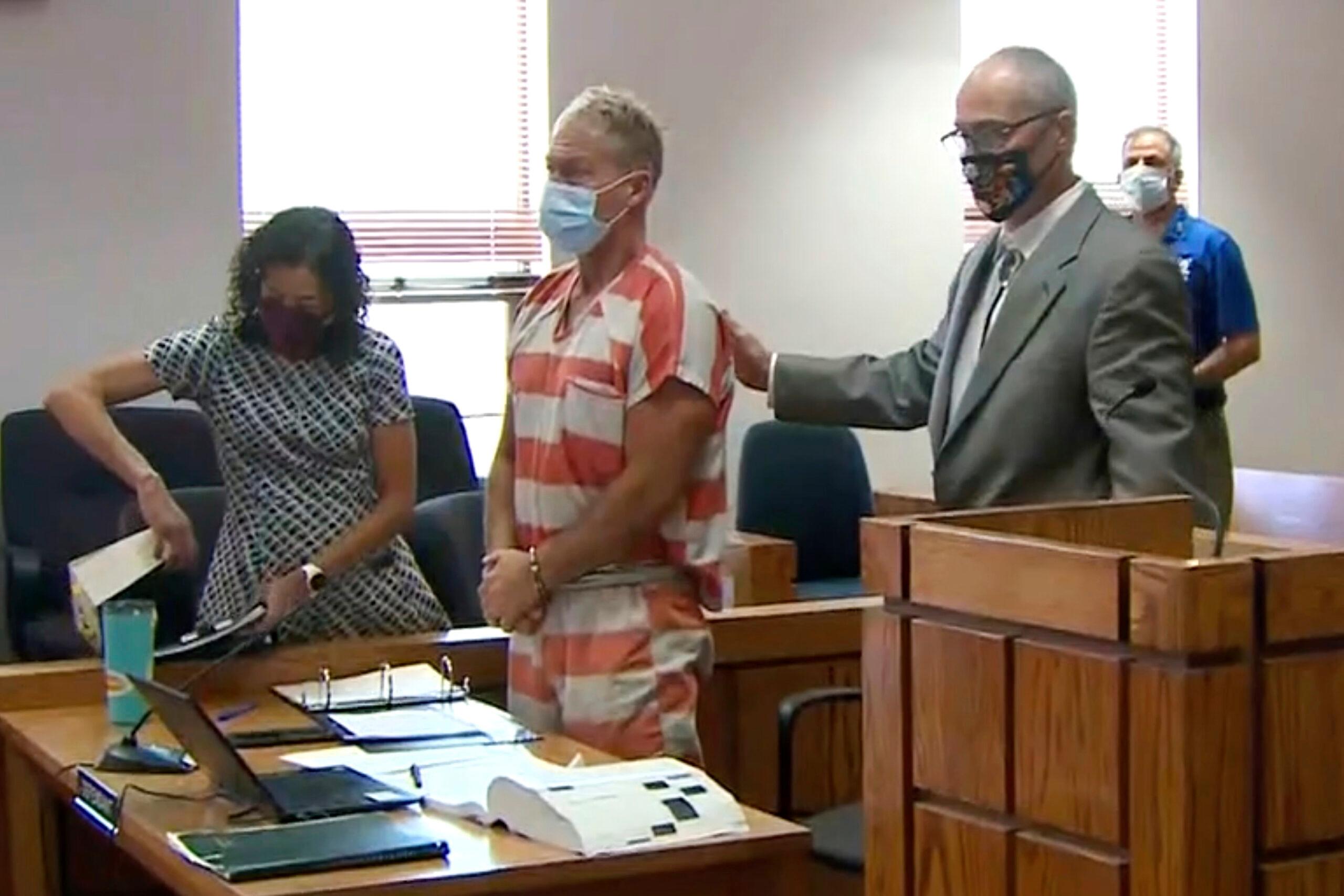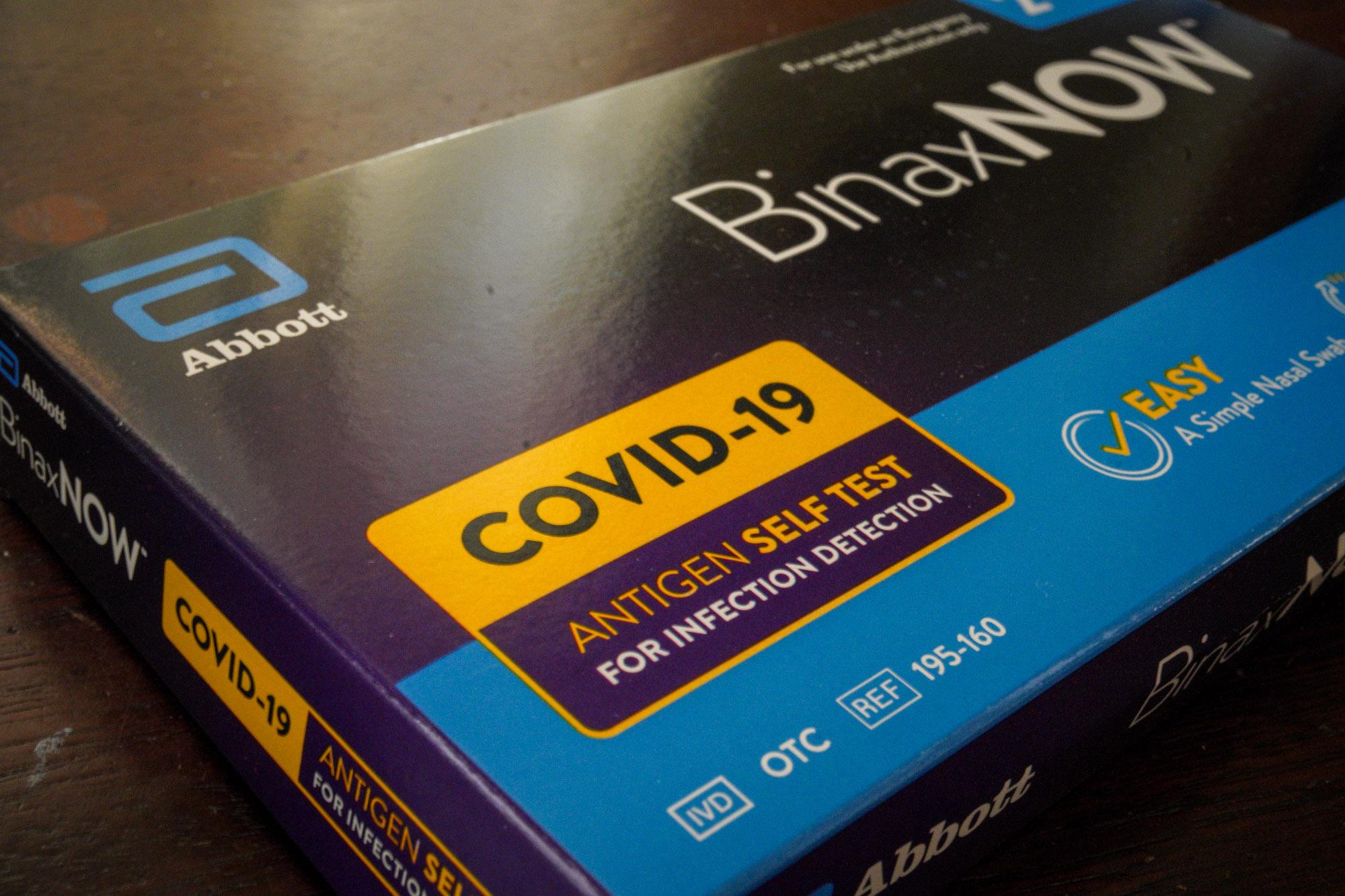
Colorado voters who fill out the Democratic ballot have their choice of eight candidates for the presidential primary next week, from Frankie Lozada to “Mando” Perez-Serrato and, of course, President Joe Biden.
At the bottom of the list, though, there’s another option: “Noncommitted delegate.”
The state's Democratic Party voluntarily placed the non-committed option on the ballot back in December, with party leadership arguing that it would encourage young voters to participate even if they’re not yet ready to support Biden.
Now, in the final days before the primary, a group known as the Colorado Palestine Coalition wants to add a new layer of meaning to the non-committed vote. They are urging Democrats and unaffiliated voters to choose “noncommitted” in protest of Biden’s support for Israel and its invasion of Gaza, which has caused tens of thousands of civilian casualties.
“We’re no longer accepting this as something that cannot be changed, and we're using this uncommitted vote to voice that opinion,” said Abdullah Elagha, a Palestinian activist in Denver. “... We are not accepting incrementalism, we're not accepting crumbs anymore.
While Biden is almost certain to win the Colorado contest, the number of non-committed votes next week will be seen as a measure of discontent among Democrats and progressives about the incumbent president and the war in Gaza.
How “uncommitted” delegates would work
There are 72 delegates up for grabs in Colorado’s Democratic presidential primary. Those delegates are divided up among candidates based on the results of the primary.
If enough voters choose the “noncommitted” option, then the state Democratic Party would have to send one or more uncommitted delegates to the Democratic National Convention in August. That would only happen if at least 15 percent of Democratic voters choose “noncommitted” — the same bar that candidates have to clear to win delegates.
Those uncommitted delegates would essentially represent a vote for nobody. When the roll is called to ultimately choose the party’s nominee at the national convention, they would declare themselves as uncommitted — at least for the first round of voting.

To be clear, noncommitted delegates from Colorado would not be free to select the candidate of their choice on the first vote, per Democratic officials.
“It’s not like a wild card,” said Shad Murib, Democratic Party chair for the state. (In contrast, uncommitted delegates from Michigan can vote how they please at the convention.)
The Colorado primary is part of the larger national process to decide the Democratic nominee.
Biden must ultimately win the majority of the nearly 4,000 “pledged” delegates at the DNC — so, if there’s enough opposition from uncommitted delegates or delegates for other candidates, the president would fall short of winning the nomination in the first round of balloting. That could potentially lead to the political chaos of a brokered convention, which hasn’t happened for either party since 1952.
That’s not looking particularly likely. Biden has racked up 206 delegates across the first four primaries. No other candidate has won any so far — but Michigan did select two uncommitted delegates this week, which came after its own pro-ceasefire campaign.
Why is “noncommitted” an option this year?
Democratic Party leaders wanted to give their voters a choice, Murib said.
“We had a discussion with my first vice chair, my second vice chair, secretary, and others, and we all agreed that this is the best thing for the party,” he said.
On Dec. 4, Murib emailed state officials to request the “uncommitted option.”
It’s not that Murib wants to encourage an anti-Biden vote — he’s a Biden supporter. But Murib argues that allowing uncommitted delegates is healthy because it gives voters more choices. Democratic officials cast the decision as one that would open the door for younger voters.
“We wanted to give people the opportunity to feel welcome and respected in our party by casting a vote for whoever they choose, even if they're not sure yet,” he said.
“There's a few states in the country that are doing this — Washington, Minnesota, and Michigan. And so states that look and feel like Colorado, having this high value on freedom and independence, are looking at this option and making sure their voters feel respected the same way.”
The party was previously interested in having an uncommitted option in 2020, Murib said, but some kind of administrative hiccup stopped that from happening. In earlier years, when the party used the caucus process, participants also could support noncommitted delegates.
The uncommitted vote has become a referendum on the war in Gaza
A few people in Democratic politics had been talking up the idea of a noncommitted vote for months, as a way to convey concern about Biden running again. Then, on Thursday morning, just less than a week ahead of the primary, the Colorado Palestine Coalition launched an organized campaign for noncommitted votes.
The group includes various leftist, progressive, pro-ceasefire and Palestine-supporting organizations, who say their calls have been ignored by Democrats.
“Now, Colorado voters like you can demonstrate your unequivocal solidarity with Palestine by pledging to vote ‘Noncommitted’ so long as President Biden continues to fund the genocide in Palestine!” their website declares.
Israel invaded Gaza after Hamas killed about 1,200 Israeli civilians and soldiers on Oct. 7; since then, more than 30,000 people have died in Gaza because of Israel’s military response, according to records and estimates from Gazan health authorities.

The U.S. Secretary of Defense recently said more than 25,000 women and children have been killed in Gaza amid the Israeli response, saying Israel should do more to protect civilians. Israel has said that civilian casualties are the result of its efforts to kill Hamas militants in a densely populated area.
Biden recently said a ceasefire could begin soon and last into April, but ceasefire advocates want an immediate and permanent halt to the Israeli military action.
With only a few days left until the primary, the Colorado noncommitted campaign won’t have much time to sway voters, but Elagah said they would use phone banks, email and social media to get the message out.
“I think that a lot of Democrats are really underestimating how much has changed within their party and within their voter base,” he said.
How many uncommitted votes should Colorado expect?
The Colorado campaign was inspired by a similar effort in Michigan, dubbed “Listen to Michigan.” Ultimately, about 12 percent of that state’s Democratic primary voters, or 100,000 people in total, went “undecided.” Another 6 percent voted for other candidates.
The results showed “ significant weaknesses in his electoral base among Arab American voters (a potentially pivotal bloc in the state) and young voters (a key part of Democrats’ coalition everywhere)” Politico reported.
The outcome also exceeded the expectations put out by the uncommitted campaign, though the magnitude of the result could be interpreted several ways.
On one hand, Michigan’s “uncommitted” percentage was only slightly higher than it was in 2012, the last Democratic president’s re-election campaign. That year, about 11 percent of primary voters chose “uncommitted” instead of then-President Barack Obama, who went on to easily win re-election.
However, Michigan’s primary turnout was much lower in 2012. So, while the “uncommitted” percentage was similar, it translated to only about 20,000 “uncommitted” votes — a much smaller number than this year.

Nationwide, the 2012 Democratic primary included more than 400,000 votes for “uncommitted” or “no preference” delegates, representing almost 5 percent of the total vote.
During President Bill Clinton’s reelection campaign in 1996, several states saw double-digit “uncommitted” returns, including 10 percent of Clinton’s home state of Arkansas, 9 percent in Maine, 11 percent in Maryland, and more than 15 percent in Alabama and Kentucky.
It’s unclear if the non-committed movement can gain enough momentum and votes to directly affect the national nominating contest. But the results in Colorado and elsewhere will likely be the subject of intense debate.
“We're going to keep pushing. Whether we get one percent or ten percent, it doesn't matter to us. Nothing is going to deter us and nothing's going to stop us,” Elagha said.
Murib didn’t want to make a prediction about the undecided vote. But he said Biden “takes nothing for granted,” adding, “I think one percent would give him as much pause as 15 [percent].”
A spokesperson for Biden’s campaign didn’t immediately provide comment on the record.
Editor’s note: This article was updated March 1, 2024 to correct the spelling of Abdullah Elagha’s name.









